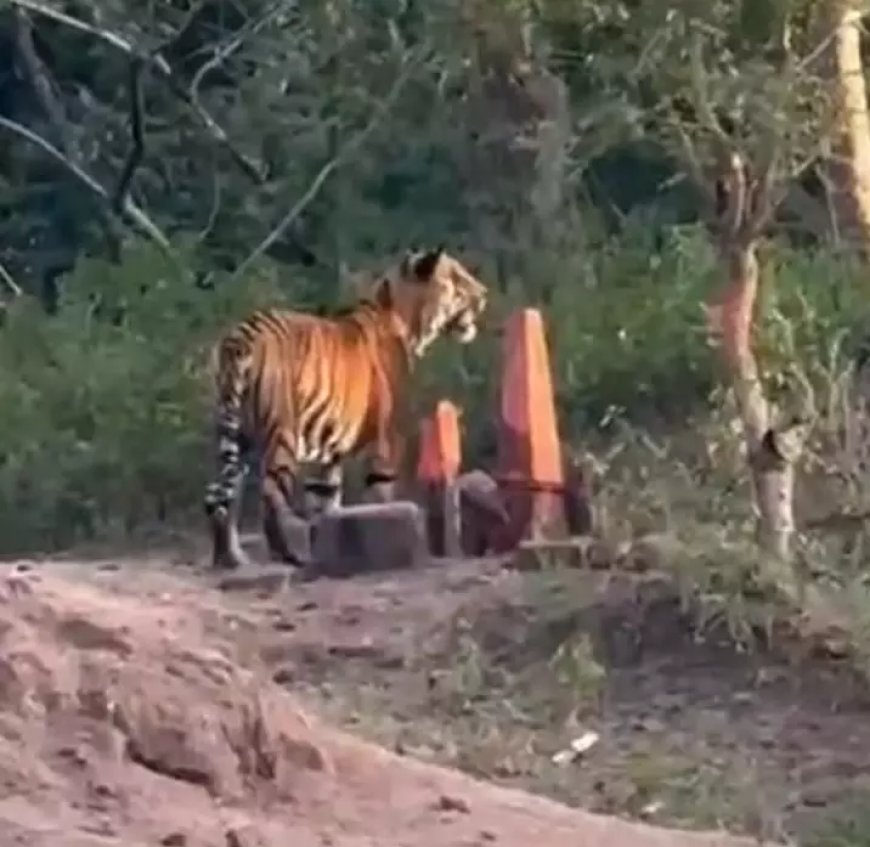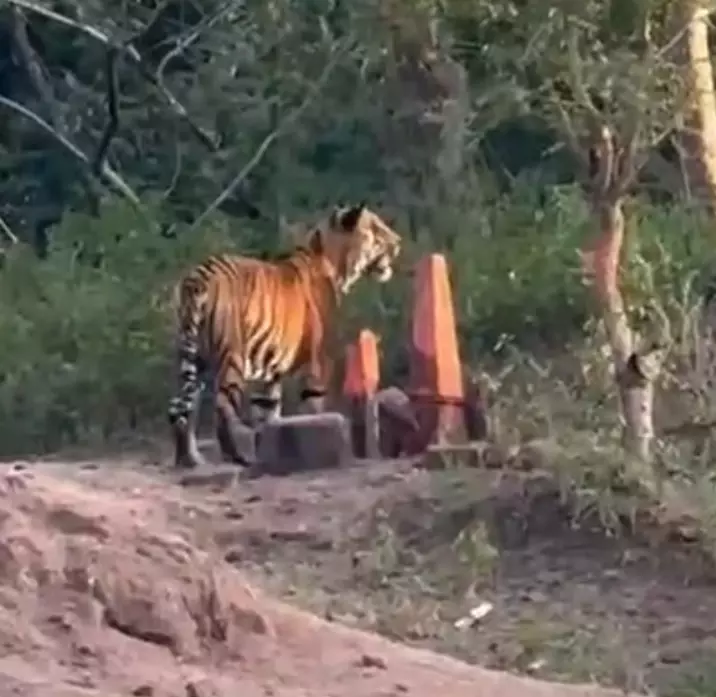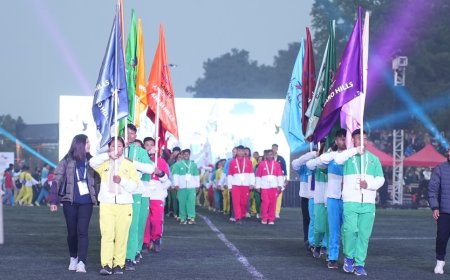Adivasi Pilgrimage Sites Frequented by Tigers
�Adilabad:�Adivasis preparing for their annual religious pilgrimage, known as Poosmas, fear they may encounter tigers near their sacred sites where animal sacrifices are traditionally offered. Incidentally, worship is offered to tigers. These pilgrimages, set to run from January 1 to 30, include visits to holy places like Kotaparandholi’s Jangubai, Narnoor’s Pulikasa and Danthanpalli’s Bheemayyak, that are located deep within the forests, where tiger movements have been recently reported. Tigers are known to frequent these areas, drawn by the scent of blood from goats and hens sacrificed at these sites. Recently, tiger activity was reported near Munda at Goyagaon in Wankidi mandal, Komaram Bheem Asifabad district — a sacred site where Adivasis raise traditional flags and offer sacrifice. During the Poosmas, groups of Adivasis journey to these sacred locations on foot, accompanied by traditional drumbeats. Children ride in bullock carts as families carry their deities (Pen) to bathe them in sacred waters at places like Toplikasa. Worshippers also visit Demmal Rajul in the Kawal tiger reserve’s core area and pray at Rajulpen, wooden tiger effigies placed on the outskirts of agricultural fields, seeking protection for their cattle and themselves. Elderly Adivasis recount encountering tigers during past pilgrimages, noting that while they often hear roars or spot the big cats, devotees have remained unharmed. Adivasi writer Mothiram Atram of the Kolam tribe explained, “We worship Rajulpen (tiger) and pray for safety. The pilgrimage to Bheemayyak in Tiryani mandal and the bathing of Bheeyyak at Toplikasa are sacred traditions deeply rooted in our culture.” As Adivasis prepare for their annual rituals, the coexistence of spiritual practices and wildlife continues to define their unique relationship with the forests they call home.


�Adilabad:�Adivasis preparing for their annual religious pilgrimage, known as Poosmas, fear they may encounter tigers near their sacred sites where animal sacrifices are traditionally offered. Incidentally, worship is offered to tigers.
These pilgrimages, set to run from January 1 to 30, include visits to holy places like Kotaparandholi’s Jangubai, Narnoor’s Pulikasa and Danthanpalli’s Bheemayyak, that are located deep within the forests, where tiger movements have been recently reported.
Tigers are known to frequent these areas, drawn by the scent of blood from goats and hens sacrificed at these sites. Recently, tiger activity was reported near Munda at Goyagaon in Wankidi mandal, Komaram Bheem Asifabad district — a sacred site where Adivasis raise traditional flags and offer sacrifice.
During the Poosmas, groups of Adivasis journey to these sacred locations on foot, accompanied by traditional drumbeats. Children ride in bullock carts as families carry their deities (Pen) to bathe them in sacred waters at places like Toplikasa. Worshippers also visit Demmal Rajul in the Kawal tiger reserve’s core area and pray at Rajulpen, wooden tiger effigies placed on the outskirts of agricultural fields, seeking protection for their cattle and themselves.
Elderly Adivasis recount encountering tigers during past pilgrimages, noting that while they often hear roars or spot the big cats, devotees have remained unharmed.
Adivasi writer Mothiram Atram of the Kolam tribe explained, “We worship Rajulpen (tiger) and pray for safety. The pilgrimage to Bheemayyak in Tiryani mandal and the bathing of Bheeyyak at Toplikasa are sacred traditions deeply rooted in our culture.”
As Adivasis prepare for their annual rituals, the coexistence of spiritual practices and wildlife continues to define their unique relationship with the forests they call home.






































